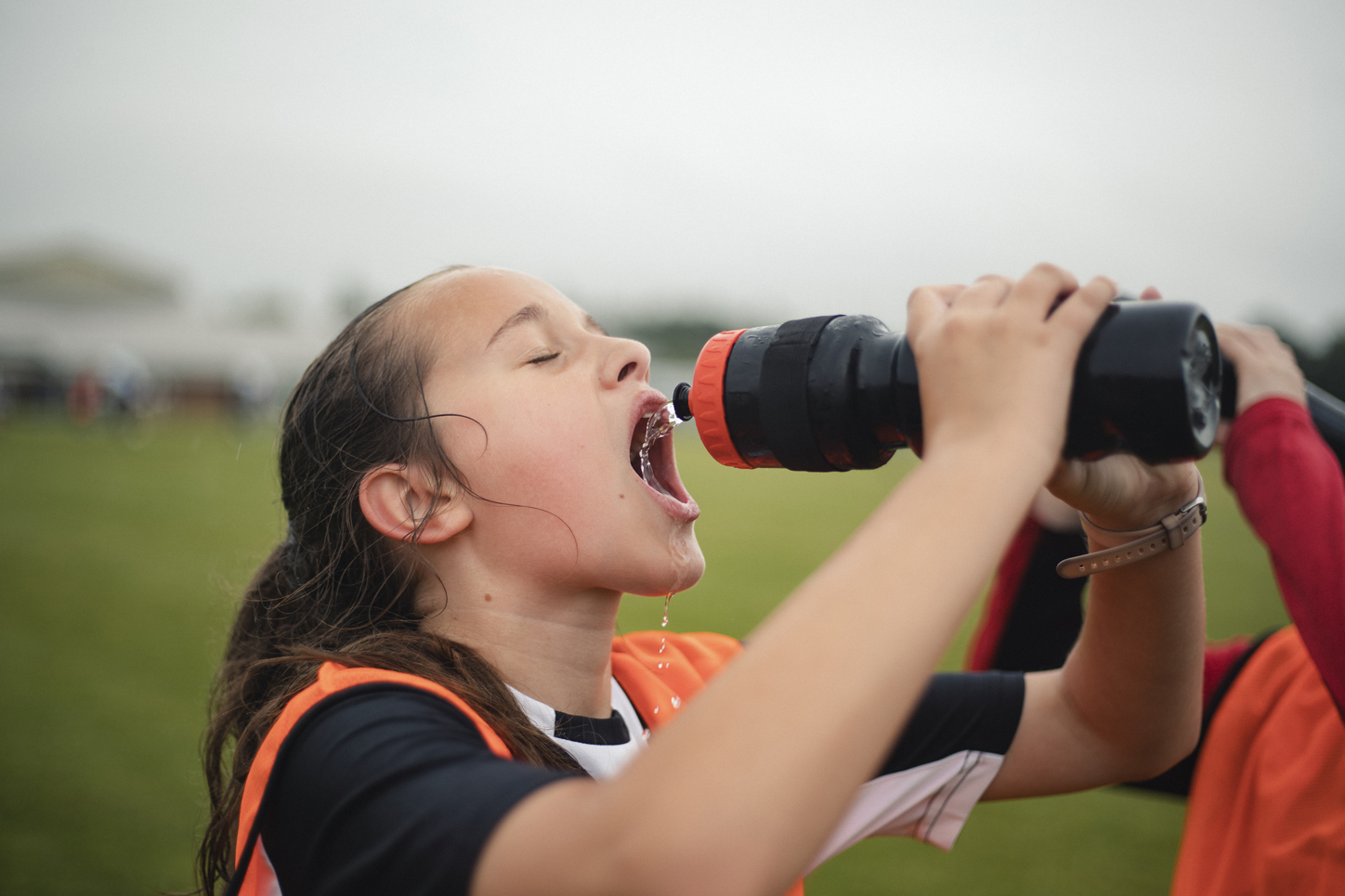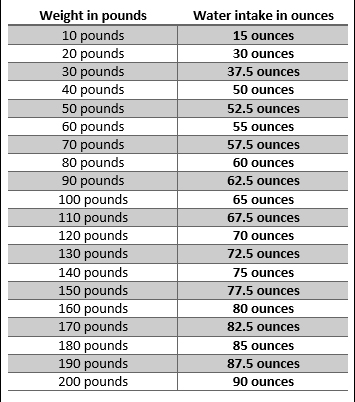
May 28, 2024, 2:00 p.m.
Nate Maynard, an Athletic Trainer
Athletic trainers see an uptick in dehydration and heat illness in the warmer months when kids are engaged in sports and camps and spending more time playing outside in general. But this is one of the most preventable factors that keep kids out of sports and activities.
The American College of Sports Medicine refers to a normal body fluid (water) level as euhydration. Simply put, this is the amount of fluid the body requires to perform its vital functions.
Hydration is especially important for kids to help support things like:
- Normal development
- Cognition
- Improved heat tolerance and reduced risk for heat illnesses like heat stroke
How much water do kids need?
Recommendations for adequate fluid intake vary by organization, with some governing bodies making recommendations based on age and others on body weight. However, using a child's body weight seems to be the more agreed-upon and effective method.
For children weighing less than 40 pounds, the National Institute of Health recommends a minimum of 1.5 ounces of water per pound of body weight for the first 20 pounds and about .75 ounces of water for every pound above that.
 Children weighing over 40 pounds should drink at least 50 ounces of water daily and another .25 ounces per pound of body weight above 40 pounds. The table below shows how much water your child should be drinking. It is important to note that these recommendations are for normal daily intake and may need to be increased as activity levels increase.
Children weighing over 40 pounds should drink at least 50 ounces of water daily and another .25 ounces per pound of body weight above 40 pounds. The table below shows how much water your child should be drinking. It is important to note that these recommendations are for normal daily intake and may need to be increased as activity levels increase.
Many studies on active children have found that hydrating only when thirsty frequently leads to inadequate fluid intake and dehydration, so parents and coaches must implement hydration strategies to help encourage kids to drink enough water.
- The International Society for Sports Nutrition recommends pre-hydrating the night before a competition with about 17 ounces of water, another 17 ounces upon waking up and another 17 ounces 20-30 minutes before the competition.
- During activity, kids should drink 15-70 ounces of water per hour, depending on environmental and individual factors.
- Children should drink approximately 35 ounces of water for each pound of weight lost after engaging in physical activity.
- Because some kids will sweat more than others, this amount will vary from child to child.
- Ideally, the child should be weighed before and after activity, which should be repeated occasionally throughout the sports season as environmental conditions change.
When should your child have sports drinks?
Sports drinks are best suited for consumption during or an hour before beginning an activity rather than during non-active periods. These drinks contain nutrients like carbohydrates that, while vital for maintaining blood sugar levels during activity, require water to be digested and are less efficient for hydration. They are intended to help replenish nutrients lost during activity, not as a primary form of hydration, so drinking a combination of water and sports drinks during activity is important.
Look for drinks that contain electrolytes, sugar and salt, which are good ways to replace nutrients and provide energy. Electrolytes are minerals that help your body maintain proper nerve, muscle and brain function. Examples include calcium, sodium, magnesium and potassium.
What are some tips for encouraging hydration for kids?
- Increase hydration when your child is active. Be vigilant about increasing your child's water intake the night before, during and after activity. When active, encourage your child to drink water, even when they don't feel thirsty.
- Be a role model. Kids respond well to seeing their role models, like their parents or siblings, drink water.
- Have your kids eat fresh fruit and salty snacks. Encourage your kids to eat fruits with high water content, like oranges and mandarins, grapes, watermelons and other melons. Salty snacks like mini pretzels or trail mix can help encourage thirst and water retention and replenish sodium. This vital electrolyte can be depleted due to heavy sweating in warmer weather.
- Save the sports drinks for the game. Sports drinks are best suited for consumption during or an hour before beginning an activity rather than during non-active periods. Healthier alternatives to sports drinks include coconut water or fruit juices such as orange or watermelon juice.
 Nate Maynard, an athletic trainer with the Young Athlete Center at St. Louis Children's Hospital, specializes in sports nutrition. He enjoys weightlifting, training his dog and traveling with his wife in his spare time.
Nate Maynard, an athletic trainer with the Young Athlete Center at St. Louis Children's Hospital, specializes in sports nutrition. He enjoys weightlifting, training his dog and traveling with his wife in his spare time.










